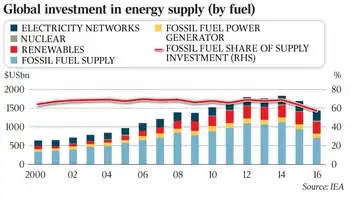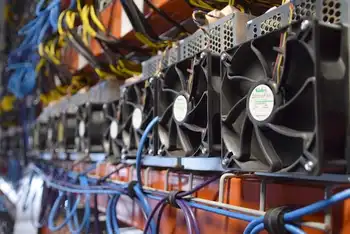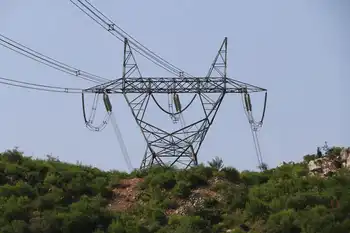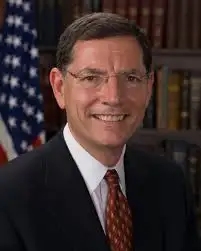Clean energy policies under stealth review
OTTAWA, CANADA - The Harper government is quietly reviewing its support for renewable energy technologies, a process that industry insiders hope will see the Conservatives finally live up to their branding of Canada as a “clean-energy superpower.”
As countries such as China, the United States and Germany plow billions of public money into renewable energy sources such as wind and solar power, Canadian energy companies say the federal government urgently needs to develop a national strategy to grab a piece of the global clean-energy market, which attracted $162 billion US in investment last year.
“We are going to be behind the rest of the world,” said Elizabeth McDonald, president of the Canadian Solar Industries Association. “We don’t have a plan. We seem to be protecting what we have, rather than looking at what we can do.”
The review includes an evaluation of the government’s ecoEnergy programs, which have offered subsidies on everything from energy-saving renovations by homeowners to investments in biofuels. But the Conservatives are holding the details — and which way they are leaning — close to the vest. Internal updates at Natural Resources Canada, which is leading the review, have been classified as “secret.”
The concept of a national clean-energy strategy has been gaining momentum since the spring, when it was endorsed at a conference in Banff, Alta. The conference brought together not just renewable-energy producers and environmentalists, but also oil-and-gas giants, conventional power companies and business organizations such as the Canadian Council of Chief Executives. The strategyÂ’s backers include two former senior Conservatives in the Harper government: former foreign affairs minister David Emerson and Bruce Carson, who was a senior adviser in the Prime MinisterÂ’s Office.
Among other things, the group is calling on the federal government to put a price on carbon emissions. The most efficient way to do that would be to establish a tax on each unit of carbon emitted, said Stephen Snyder, chief executive of Calgary-based power giant TransAlta Corp., which has transformed itself into CanadaÂ’s biggest wind-power producer.
“A carbon tax, from an electrical-industry perspective, is probably a better way to go,” said Snyder. “But a cap-and-trade mechanism would work, too. I’m a bit less worried about what the price mechanism is, than whether there is one.”
Prime Minister Stephen Harper and members of his cabinet have repeatedly touted Canada as a budding clean-energy superpower. But the results so far have been underwhelming. On a per-capita basis, the United States is spending roughly 18 times the amount invested by Canada in renewable energy, according to a report this spring by the Pembina Institute, an environmental research group. Renewable-energy supporters worry the review will simply perpetuate the status quo.
Critics complain the Harper government has favoured solutions that benefit established industries in the Conservatives’ Western Canada power base. In its last budget, the government created a “clean-energy fund” of nearly $800 million, but most of the money is being invested in carbon capture and storage, which oilsands developers plan to use to store carbon emissions underground.
The government also finalized regulations this fall that will require gasoline sold in Canada to include five per cent renewable fuel. The new rules are a boon to producers of ethanol, as well as the corn and wheat farmers who grow the crops from which it is typically made. The government is expected to implement a renewable quota of two per cent for diesel next year.
“My sense is that government is committed to wanting to do more, simply because we and the government see where energy demand is going,” said Gordon Quaiattini, president of the Canadian Renewable Fuels Association.
The government has been less enthusiastic in other areas. Last year, a federal program designed to invest $1.5 billion over four years in renewable-power projects ran out of cash, roughly two years ahead of schedule. The ecoEnergy for Renewable Power program, which offered a subsidy of one cent per kilowatt hour of electricity, was especially popular among wind-energy developers.
The government doesnÂ’t necessarily need to create another subsidy program, as long as potential wind investors are given a clear signal of what their returns will be on wind projects, which often take years to bring online, said Sean Whittaker, vice-president of policy at the Canadian Wind Energy Association.
“Investors love certainty, and once they get that signal, then they can invest with confidence. So we would like the federal government to be proactive,” said Whittaker, noting that the government could also use tax incentives to encourage wind-power production.
The government plans to complete its review early next year, but several factors make it unlikely next springÂ’s budget will include a grand strategy.
For one thing, the Conservatives have vowed to eliminate their $56-billion deficit within six years. The Harper government has also said it will harmonize its regulation of carbon dioxide and other greenhouse gases with the United States. That could take years, given that U.S. President Barack ObamaÂ’s proposed cap-and-trade system is unlikely to become law anytime soon, now that the Republicans have reclaimed control of Congress.
Related News

IEA warns fall in global energy investment may lead to shortages
MELBOURNE - An almost 20 per cent fall in global energy investment over the past three years could lead to oil and electricity shortages, and there are concerns about whether current business models will encourage sufficient levels of spending in the future, according a new report.
The International Energy Agency’s second annual IEA benchmark analysis of energy investment found that while the world spent $US1.7 trillion ($2.2 trillion) on fossil-fuel exploration, new power plants and upgrades to electricity grids last year, global energy investment was down 12 per cent from a year earlier and 17 per cent lower than 2014.
While the…




